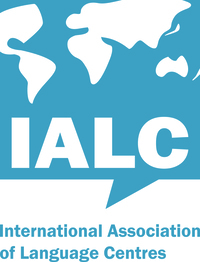If you’re applying for a visa for work or study in the UK, you’ll need to do well on your IELTS test. So, you may be wondering how do you test your English level for IELTS? This is important, so that you can set realistic goals, and prepare properly for your test.
Of course, most students would like to speak English totally fluently. Taking an IELTS preparation course is one of the best ways to do this, but only if you have a clear picture of your current language skills.
With that in mind, today we’re going to look at how to test your English level for IELTS, so that you can choose the perfect course for you.
Let’s start with the basics.
How Does IELTS Test Your English Level?
IELTS is designed to test all different levels of English language skills, from absolute beginners, to complete fluency. Students are given a score on a nine-band scale, with zero meaning no language skills, and nine being an expert English user.
The test itself is divided into three sections:
- Speaking,
- Listening,
- Reading,
- Writing.
Unlike many English tests, IELTS does not have a particular passing grade. Instead, IELTS is aimed at accurately assessing your English skills. Different universities and governments can choose their own IELTS score to use as an entry requirement.
For all four sections of the test, IELTS assesses your ability to use and understand a range of grammar, vocabulary, accents and contexts, with accuracy and fluency.
Next, we’ll look at how you can test your English level for each of the four parts of the IELTS exam.
How to Test Your English Level for IELTS Speaking
The speaking portion of the IELTS test is probably the most difficult to self-assess. Naturally, the best way to do this is by speaking to an experienced English teacher or IELTS tutor. However, if this isn’t an option, you can still get a rough idea of your spoken English level.
One way to do this is to record yourself answering a practice question, for example describing what you did at the weekend. You can then either critique your own skills, or ask an English speaking friend to do this for you.
The key thing here is to use the actual IELTS assessment criteria.
For example, some of the key criteria include how often you hesitate in your speech, as well as the range of vocabulary and syntax which you can use to express yourself in detail. Be critical, and compare your responses in English with all the things you might say in your native language.
Once again, the most effective way to accurately test your English speaking level for IELTS is to speak to an experienced teacher. All other strategies are only an estimate.


Mimi Thian
How to Test Your English Level for IELTS Listening & Reading
For the listening and reading portions of the exam, it’s much easier to accurately test your English level for IELTS. The easiest way to do this is using official practice tests. These are available in print, or as online language learning resources.
The key here is to take the practice tests under real life IELTS exam conditions. This means spending 30 minutes on the listening test, and an hour for the reading section. If you use official practice papers, you can mark your work based on the answers at the back of the book.
Both of these tests are marked out of 40, which you can then translate into an IELTS band to see how close you are to your target score. It’s generally a good idea to take a few practice tests, and then work out how you’re doing on average.
It’s also important to note that there are two different IELTS reading tests.
These are for the General and Academic IELTS streams. As such, if you want to accurately test your English level for IELTS, it’s important to use the practice papers which match your goals.
How to Test Your English Level for IELTS Writing
Like speaking, it’s a bit trickier to test your written English level for IELTS. Really, the only truly accurate way to measure your writing skills is to engage a professional English teacher.
However, just like the speaking test, it’s possible to estimate your English level for IELTS. There are two different strategies which are popular. These are:
- Using online assessment tools and language tests,
- Using the CEFR framework to estimate your writing skills.
There are many different online IELTS tests out there, but some are much better than others. It’s always best to use an online IELTS test from a reputable language school, or experienced online English teacher.
If you don’t have access to an English teacher, you can also estimate your IELTS band using the Common European Framework for Reference of Languages (CEFR). Just like IELTS, the CEFR is a scale which ranges from no knowledge, to complete fluency.
These bands are as follows:
- Beginner (A1) – You can only use or understand basic vocabulary and sentences. Equivalent to IELTS bands 0-3.
- Elementary (A2) – You can communicate simple ideas in familiar settings. Equivalent to IELTS bands 3-4.
- Intermediate (B1) – You can deal with most situations you might encounter as a tourist. Equivalent to IELTS bands 4-5.
- Upper Intermediate (B2) – You can interact with native speakers with fluency and accuracy in most everyday situations. Equivalent to IELTS bands 5-6.
- Advanced (C1) – You can confidently use English in almost all social, professional or academic situations. Equivalent to IELTS bands 6-8.
- Master (C2) – You can use and understand virtually all written English. Equivalent to IELTS bands 8+.
There are countless resources available for assessing your CEFR English level, including online tests, quizzes, working with a professional teacher, or simple self-assessment.


Aaron Burden
How Can I Improve my IELTS Score?
Of course, the most important thing is not just figuring out your current English level for IELTS. It’s coming up with a plan to improve your English skills and meet your language learning goals. Knowing how to test your English level is simply the first step on your journey.
As we’ve stressed throughout, the only truly effective way to gauge your IELTS level is to work with a professional language school. This might be through a one-to-one consultation, or using their own online assessment tools.
In the same way, the most effective way to improve your IELTS score, and meet your goals, is with a specialist IELTS preparation course. At International House Belfast, we have helped countless IELTS students to move on to bigger and better things.
As part of the International House family, we have partner organisations across the UK and Ireland, including in Galway, Manchester, Portsmouth and Bristol. Wherever you are, the International House family is here to support you with your English language goals.


























